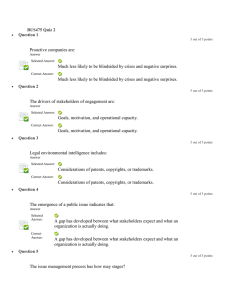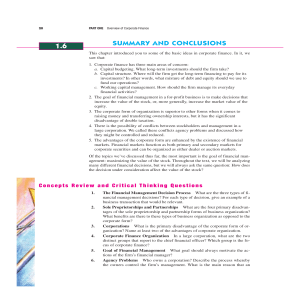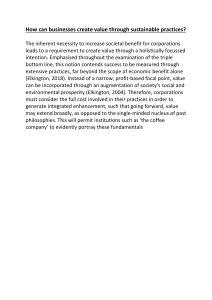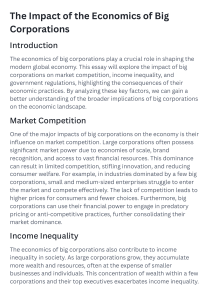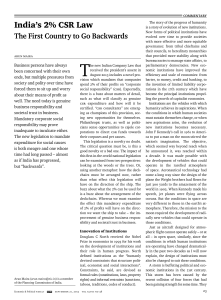Corporate Finance Introduction: Agency, Goals, Ethics
advertisement
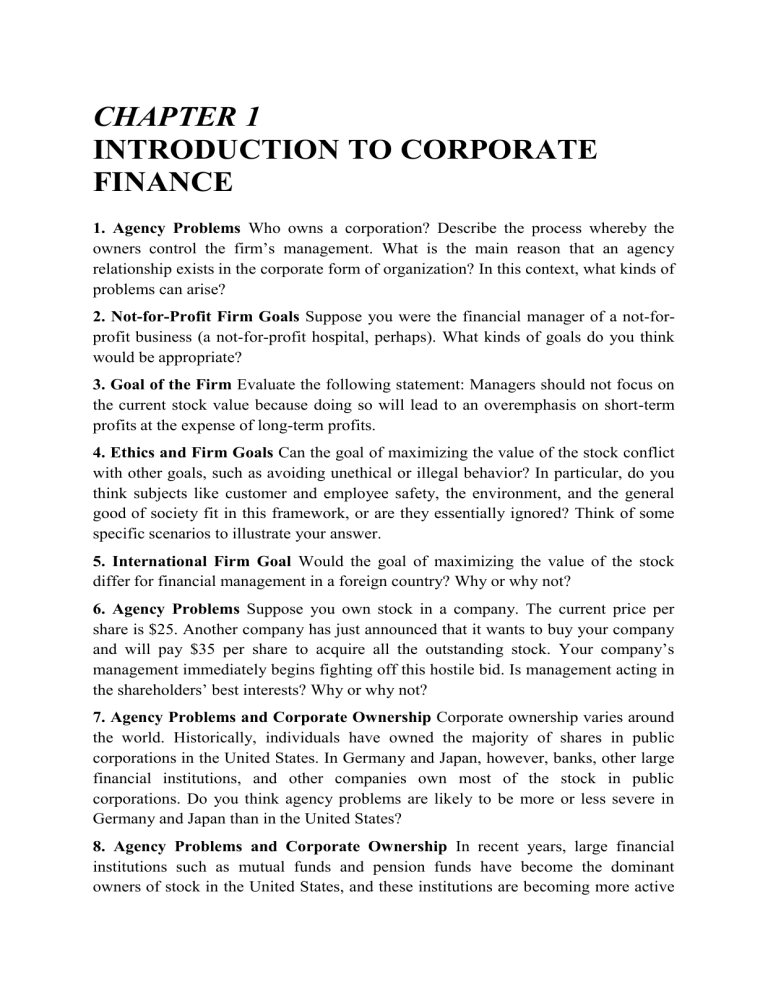
CHAPTER 1 INTRODUCTION TO CORPORATE FINANCE 1. Agency Problems Who owns a corporation? Describe the process whereby the owners control the firm’s management. What is the main reason that an agency relationship exists in the corporate form of organization? In this context, what kinds of problems can arise? 2. Not-for-Profit Firm Goals Suppose you were the financial manager of a not-forprofit business (a not-for-profit hospital, perhaps). What kinds of goals do you think would be appropriate? 3. Goal of the Firm Evaluate the following statement: Managers should not focus on the current stock value because doing so will lead to an overemphasis on short-term profits at the expense of long-term profits. 4. Ethics and Firm Goals Can the goal of maximizing the value of the stock conflict with other goals, such as avoiding unethical or illegal behavior? In particular, do you think subjects like customer and employee safety, the environment, and the general good of society fit in this framework, or are they essentially ignored? Think of some specific scenarios to illustrate your answer. 5. International Firm Goal Would the goal of maximizing the value of the stock differ for financial management in a foreign country? Why or why not? 6. Agency Problems Suppose you own stock in a company. The current price per share is $25. Another company has just announced that it wants to buy your company and will pay $35 per share to acquire all the outstanding stock. Your company’s management immediately begins fighting off this hostile bid. Is management acting in the shareholders’ best interests? Why or why not? 7. Agency Problems and Corporate Ownership Corporate ownership varies around the world. Historically, individuals have owned the majority of shares in public corporations in the United States. In Germany and Japan, however, banks, other large financial institutions, and other companies own most of the stock in public corporations. Do you think agency problems are likely to be more or less severe in Germany and Japan than in the United States? 8. Agency Problems and Corporate Ownership In recent years, large financial institutions such as mutual funds and pension funds have become the dominant owners of stock in the United States, and these institutions are becoming more active in corporate affairs. What are the implications of this trend for agency problems and corporate control? 9. Executive Compensation Critics have charged that compensation to top managers in the United States is simply too high and should be cut back. For example, focusing on large corporations, Larry Ellison of Oracle has been one of the best-compensated CEOs in the United States, earning about $76.9 million in 2013. Are such amounts excessive? In answering, it might be helpful to recognize that superstar athletes such as Cristiano Ronaldo, top earners in the entertainment field such as James Cameron and Oprah Winfrey, and many others at the top of their respective fields earn at least as much, if not a great deal more. 10. Goal of Financial Management Why is the goal of financial management to maximize the current value of the company’s stock? In other words, why isn’t the goal to maximize the future value?



